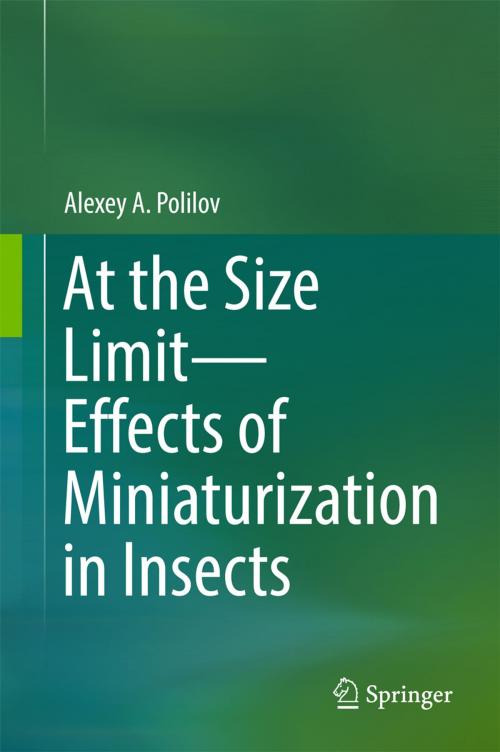At the Size Limit - Effects of Miniaturization in Insects
Nonfiction, Science & Nature, Science, Biological Sciences, Ecology, Zoology| Author: | Alexey A. Polilov | ISBN: | 9783319394992 |
| Publisher: | Springer International Publishing | Publication: | October 20, 2016 |
| Imprint: | Springer | Language: | English |
| Author: | Alexey A. Polilov |
| ISBN: | 9783319394992 |
| Publisher: | Springer International Publishing |
| Publication: | October 20, 2016 |
| Imprint: | Springer |
| Language: | English |
This book addresses microinsects, their structure and their differences from larger relatives. Moreover, it discusses structural changes that accompany extreme diminution in living organisms, evolutionary inventions that help insects to live in the microworld, and factors that limit the size of animals. It also takes a careful look at the potential benefits of the study of microinsects for solving biotechnological and fundamental scientific problems. Miniaturization is not only a trend in technology: it is also one of the trends in the evolution of life. Many of the problems modern engineers are still struggling with were solved by nature millions of years ago. The world of microscopic organisms, invisible to the naked eye, is all around us. Microinsects — the extremely diverse range of miniature insects less than a millimeter long — are one of the most intriguing components of this microworld. Having evolved to the size of unicellular organisms, the smallest insects managed not only to preserve their structural complexity, but also to evolve some novel features not found in larger insects.
This book addresses microinsects, their structure and their differences from larger relatives. Moreover, it discusses structural changes that accompany extreme diminution in living organisms, evolutionary inventions that help insects to live in the microworld, and factors that limit the size of animals. It also takes a careful look at the potential benefits of the study of microinsects for solving biotechnological and fundamental scientific problems. Miniaturization is not only a trend in technology: it is also one of the trends in the evolution of life. Many of the problems modern engineers are still struggling with were solved by nature millions of years ago. The world of microscopic organisms, invisible to the naked eye, is all around us. Microinsects — the extremely diverse range of miniature insects less than a millimeter long — are one of the most intriguing components of this microworld. Having evolved to the size of unicellular organisms, the smallest insects managed not only to preserve their structural complexity, but also to evolve some novel features not found in larger insects.















